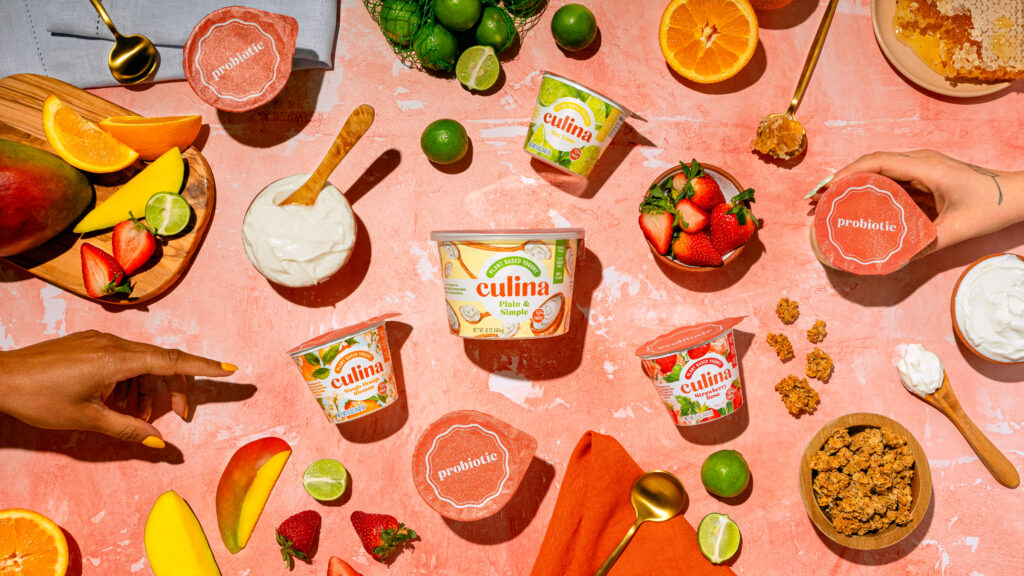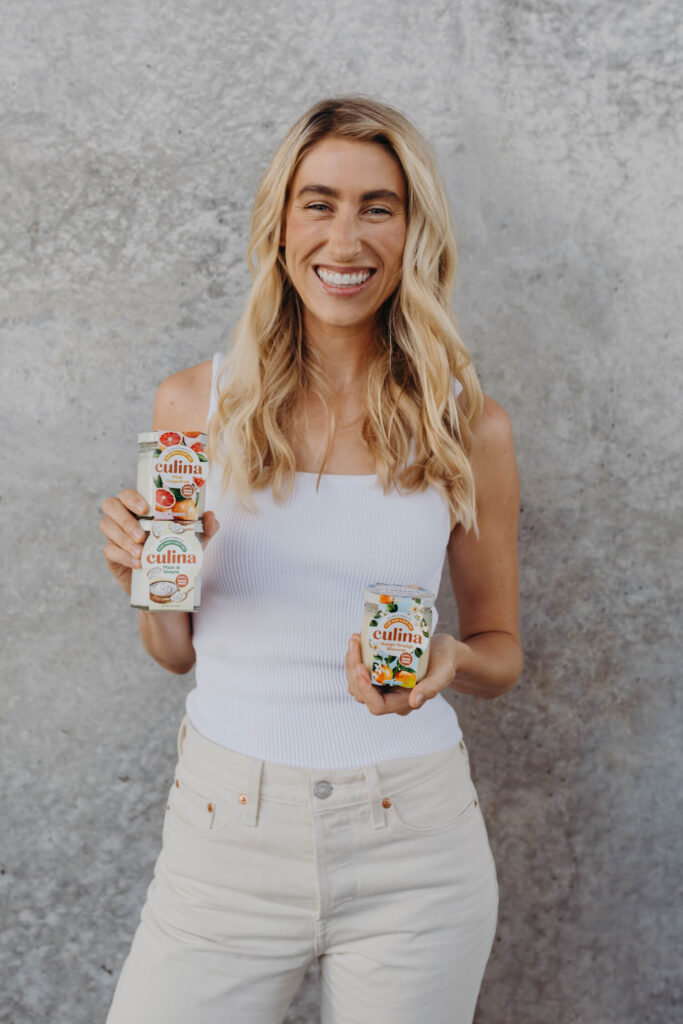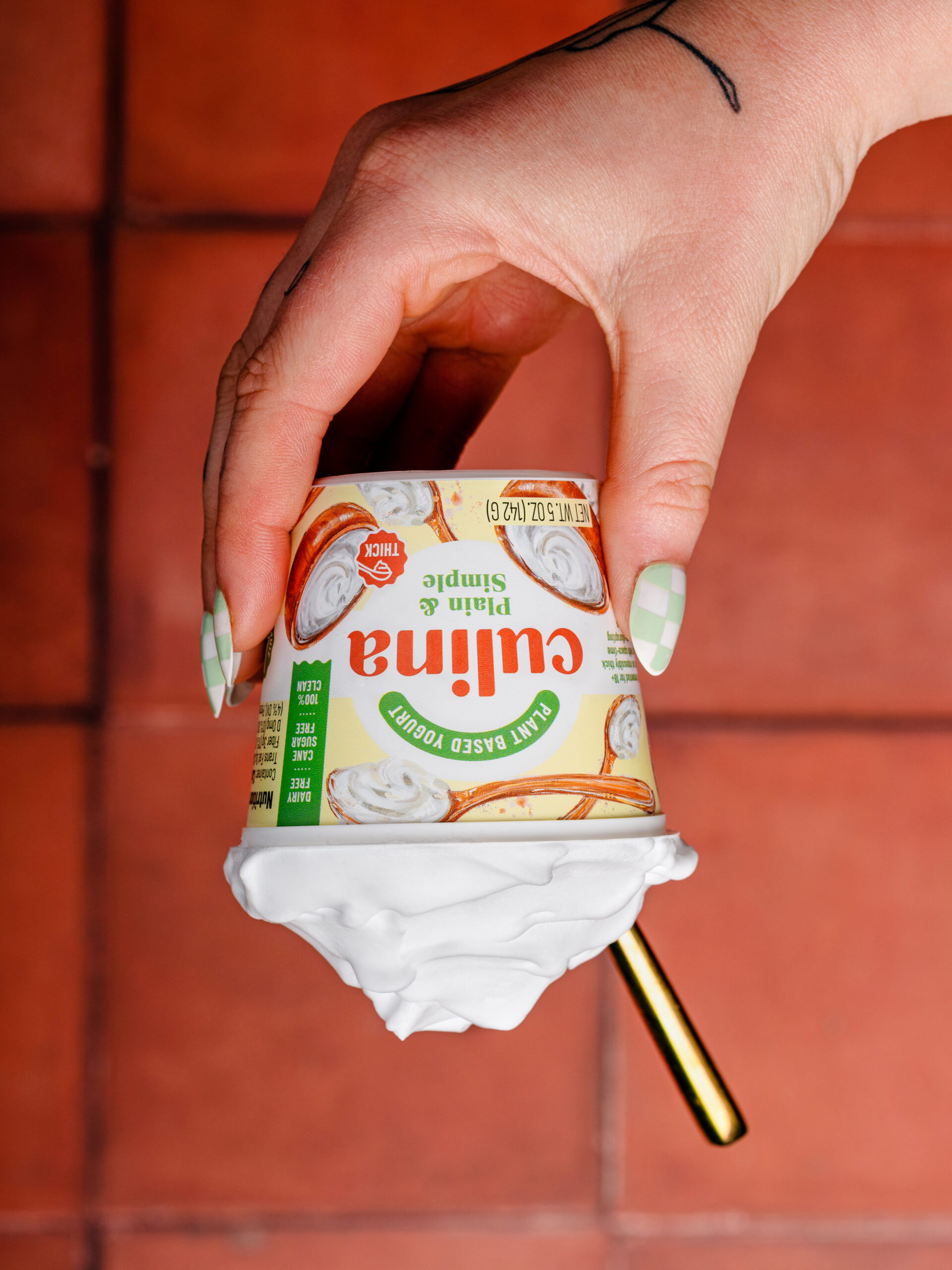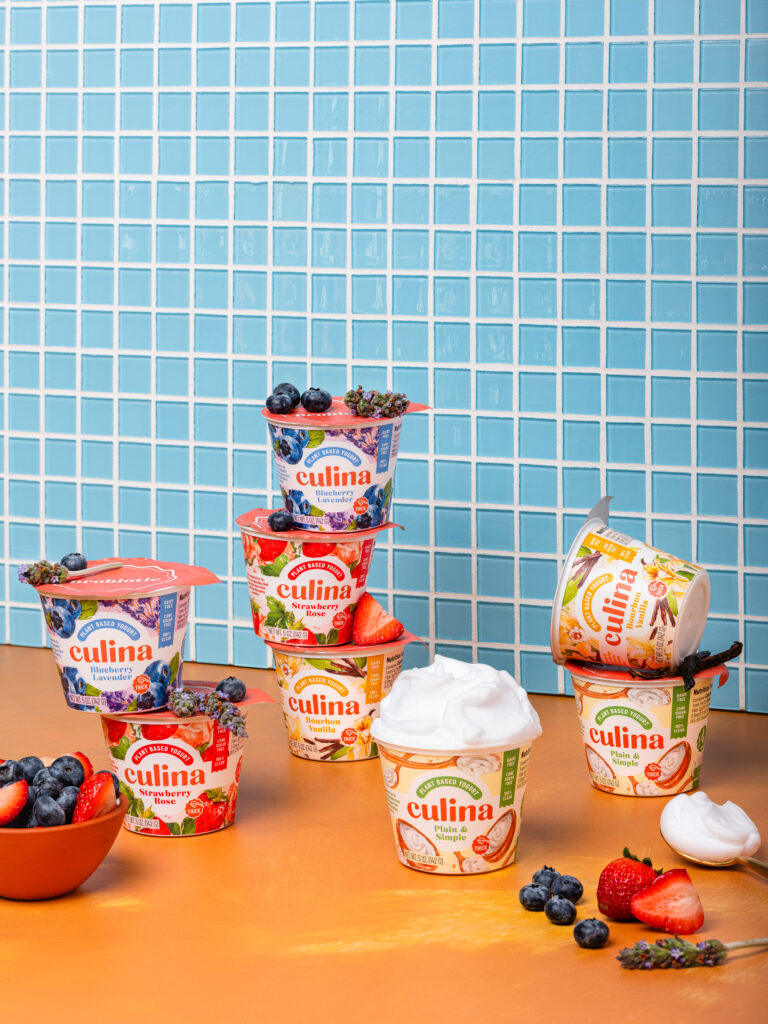Austin Local Erin Asaad on Creating Culina Yogurt
The crave-able coconut-based yogurt brand is flying off the shelves at Whole Foods, Sprouts and more

I first met Erin Asaad at a local farmer’s market in 2017. At the time, I was not eating gluten, dairy or sugar due to gut issues, so when she gave me a sample of the coconut yogurt she was selling, it was bliss. I hadn’t had yogurt in months or a brand like this ever. When I learned the impetus for creating Culina was her own similar gut issues, I was intrigued.
While I didn’t see Erin in person again until meeting for this interview recently, I continued to follow the brand. Soon I saw Culina for sale at Whole Foods, and then Sprouts. I saw the recipes, packaging and brand aesthetic evolve to what it is today. And I continued to buy it along the way, because it truly is just that good. It’s thick, tangy and flavorful — with clean ingredients and creative flavors like sour cherry almond and mango orange blossom.
Erin grew up and went to college in Georgia but moved to New York City as soon as she graduated. However, she soon realized the Big Apple wasn’t for her and quickly came to Austin, where her boyfriend (now husband) Blake was living.
“I really love Austin,” she says. “The city is so focused on health and wellness, and it’s just an easy place to be in when you’re in your 20s and trying to figure out life, whereas New York is a grind.”

When she moved here, she quickly found a job as a server at a now-shuttered restaurant called Bacon, which served up bacon-themed classics in its downtown location.
“It was the one job where I felt like I could wake up and go to work at 6 a.m. and be happy,” Erin recalls. “I loved being around food.” She started to refine her own culinary and recipe-making skills at that job. In her free time, she’d experiment in the kitchen and even created a bacon cookie recipe that became a popular menu item. However, she eventually transitioned to a full-time position in the oil and gas industry. But a couple years into that career, she found herself having some serious gut health issues and knew it was time to address them, which included cutting out gluten, sugar and dairy from her diet.
MORE: How Two Creatives Built Authentic Sauce Brand, Yellowbird
Before Erin started her elimination diet, her best friend’s mom, who is Persian, taught her how to make traditional yogurt, which is used abundantly in Persian cooking. Erin decided to try the same technique but with coconut cream instead of milk. To her surprise, it came out thick and fluffy. And while she has continued to tinker and scale the recipe, this original experiment remains the basis for Culina today.
When Erin realized that nothing out there existed like what she was making, she felt compelled to bring it to the world. The only non-dairy yogurts on the market at that time were soy-based, with poor flavor and texture.
 Erin was managing her full-time role in the oil and gas industry while selling her yogurt at farmers markets around town on the weekends. She’d drive to the commercial kitchen up north every day after work to start a new batch, where it would ferment overnight, and go back the next day to mix it up and make the fruit flavorings. She would then hand pour the yogurts into containers that would be sold at the farmers markets that weekend. Blake would help her at the farmers market and make delivers, so they were in it together from the start.
Erin was managing her full-time role in the oil and gas industry while selling her yogurt at farmers markets around town on the weekends. She’d drive to the commercial kitchen up north every day after work to start a new batch, where it would ferment overnight, and go back the next day to mix it up and make the fruit flavorings. She would then hand pour the yogurts into containers that would be sold at the farmers markets that weekend. Blake would help her at the farmers market and make delivers, so they were in it together from the start.
“I’m just very into eating healthy, and I feel like the farmers market is definitely the source of where you’re gonna find the most up-and-coming and probably most authentic sources of food in your community,” says Erin, who still frequents multiple farmers markets each weekend to stock up on food for the week.
One day, a woman named Kelly Landrieum, who worked at Whole Foods, came up to her stand. Kelly was a big fan of the product and went on to give Erin feedback on how to take it to the next level, including changing the packaging and making the texture more consistent. While it took a lot of work and iterations, after about two years Culina did get Whole Foods distribution in 2019, soon followed by Sprouts. Around this time, Erin was also able to quit her full-time job to work on the brand.
They had to transition from hand-packing to working with their first contract packager because a bigger facility was needed with the
ramp in volume. And scaling the recipe was more complicated than she had anticipated. At this time, the terracotta cups she’d been using for packaging started absorbing the yogurt. They had initially chosen these cups because an early mentor of Erin’s had said the packaging had to be interesting in order to make the brand successful. Looking back, Erin probably would not have chosen such an expensive and niche packaging when her product was unique enough in itself.
However, at the time, she was only concerned with the money and momentum they were losing from the issue. Products on shelves had no yogurt in them since the clay was absorbing it all. It was a chaotic time, and Culina was at risk of losing the new distribution. But ultimately, they were able to move to different containers within a month and kept most of their momentum.
 The brand didn’t have money for marketing or promotions, so they instead focused on getting to know store employees and educating them on the yogurt — and in turn they’d recommend it to customers. Once people tried it, they often came back for more, so the initial grass roots, word-of-mouth marketing worked well for them, and Whole Foods continued to put the yogurt into more stores until it was sold nationwide.
The brand didn’t have money for marketing or promotions, so they instead focused on getting to know store employees and educating them on the yogurt — and in turn they’d recommend it to customers. Once people tried it, they often came back for more, so the initial grass roots, word-of-mouth marketing worked well for them, and Whole Foods continued to put the yogurt into more stores until it was sold nationwide.
All of the yogurts are made without additives or gums, which can cause digestive issues for some people. The flavors are crafted with fruit and maple syrup along with pure essential oils that come together as elevated versions of more traditional yogurt flavors (think strawberry rose and blueberry lavender). The most popular, however, is the bourbon vanilla, which uses the most expensive and flavorful vanilla, which they source from Madagascar.
“People forgot what vanilla is supposed to taste like because most of the vanilla used is really low-quality or fake vanilla flavor,” she says. “And so when people try ours, they’re like, ‘Oh my god, this is what vanilla should taste like.’”
The team now has around seven people, one of which is Blake, who runs sales. “You cannot let anything fester, and there’s this constant bonding that’s happening,” Erin says of running a business with your spouse. “It’s made us a lot closer, and we love being together all day long.”
Through it all, Erin has followed her intuition and put in hard work. While there have been plenty of ups and downs, she feels grateful to be running a company that’s filling a unique consumer need with consciously made, dairy-free yogurts.
MORE: Underdog Triumphs With Its Korean-Influenced Menu and Lively Natural Wine Pairings


